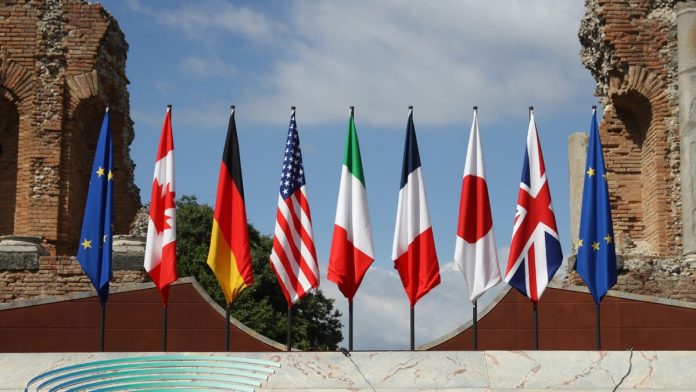Лідери країн G7 опинилися перед складним вибором: виконати ордер Міжнародного кримінального суду (МКС) на арешт прем’єр-міністра Ізраїлю Біньяміна Нетаньягу або продовжувати співпрацю з ним задля вирішення конфлікту на Близькому Сході.
Посилення напруженості в регіоні через війну в Газі та Лівані, а також конфронтація з Іраном, змушують західні країни шукати компроміс між дотриманням міжнародного права і необхідністю врегулювання конфлікту. Як зазначив міністр закордонних справ Італії Антоніо Таяні, арешт Нетаньягу “не наблизить нас до миру”.
Італія пропонує тимчасово призупинити дію ордера, щоб дозволити Нетаньягу брати участь у переговорах без ризику арешту. Серед можливих заходів – надання прем’єру Ізраїлю імунітету та обмеження його офіційних візитів до європейських країн.
Країни G7 демонструють різні підходи до ситуації:
- Італія закликає поєднувати дотримання міжнародних зобов’язань із прагматизмом, пропонуючи компромісні рішення.
- США, які не визнають юрисдикцію МКС, уникли прямої участі в дискусії.
- Велика Британія заявила про готовність виконати ордер МКС, хоча це може ускладнити дипломатичну роботу в регіоні.
США, як ключовий союзник Ізраїлю, стоять осторонь обговорень, оскільки не визнають юрисдикцію МКС. Водночас їхня позиція залишається важливим чинником для прийняття рішень європейськими країнами.
Велика Британія, яка заявляє про готовність дотримуватися міжнародного права, ризикує ускладнити власні дипломатичні зусилля у досягненні перемир’я в регіоні.
Тимчасове призупинення ордера може мати як позитивні, так і негативні наслідки. З одного боку, це сприятиме продовженню діалогу між Ізраїлем та західними країнами, з іншого – підважить авторитет МКС, сигналізуючи про можливість ігнорування його рішень заради політичної доцільності.


